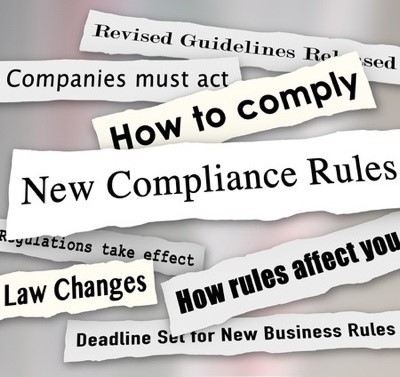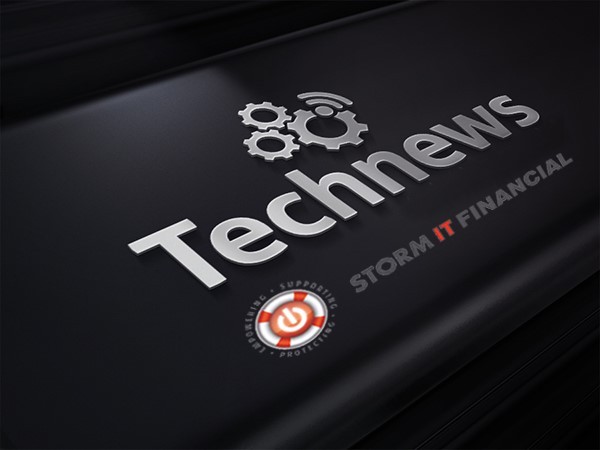FinTech Trends Newsletter Week 2nd April – 6th April 2018

The Only Constant is Regulatory Change

For all financial institutions, the myriad of regulations that they must adhere to is staggering. The difficulty is these regulatory requirements are moving targets, rarely static or black and white. Current regulations are updated and guidance on existing ones can evolve and new ones are enacted. In the past couple years we have seen the new United States FinCEN CDD (Customer Due Diligence) Rule, the 4th EU MLD, MiFID II, GDPR, just to name a few. And the changes just keep on coming. The 4th EU MLD is still being nationalised in several EU member states at the same time that the 5th EU MLD is being finalised by the European Commission. MiFID II, while in effect, has seen the parts of it related to dark pool trading pushed out for another 3 months, at minimum. There is mounting pressure in the US by Congress and the banking industry to re-examine the AML regulations. The rise of digital currency, distributed ledger technology, robot- ics, and artificial intelligence is leading to the development of new regulations, and reviews of existing ones to address these new technologies.
Change, What’s the Big Deal? The truth is that with financial institutions we are like oil tankers – slow and difficult to change course. When regulations change or new ones are enacted it affects numerous processes, creating questions that need to be worked through and answered like Does the new or changed regulation apply to our firm? How does it apply? Does it require changes or additions to the IT infrastructure to support those changes? Does it require staff training or hiring additional staff?
While these questions seem straight forward, they get exponentially harder to work through as you add in the relevant stakeholders. You have compliance, legal, business, operations, IT, the list goes on and on. Different interested parties make consensus difficult. Oftentimes, outside counsel or consulting firms need to be brought in as an objective third party to help identify the answers to the questions. On top of the number of parties involved, the regulations themselves also create a lot of uncertainty. Many regulations are not black and white, requiring bank specific interpretation and risk based approaches. Anti-Money Laundering (AML) regulations are a notoriously grey set of regulations.
How Does Technology Help or Hurt? Once Financial Institutions have identified the changes that need to be made, technology is often used to actually make those changes. This is one of the areas in which technology can provide huge advantages or slow change down to a snail’s pace. Why is this? Well, there are certain practices that can lead to these issues like business and IT working separately which leads to business “making requests” and IT fulfilling them. This often leads to several repetitions of changes to get it right and extensive back and forth creates lengthy periods of time to implement changes correctly.
What Can You Do to Better Meet These Changes? Preparation is key and so is technology. But how can your technology choices help you prepare for the unknown regulatory changes will occur? One way to do that is to leverage scalable technology that you have control over and that you understand. With scalable technology, you will be able to simplify your technology landscape, remove silos, and simplify the number of system changes that need to be made. Use low-code or no-code software that your own IT team are in charge of and that the business and compliance teams can become familiar with. When changes or new regulations occur, this will allow these teams to work closely together to make fast, accurate changes to meet the policy, procedure, and process changes that will occur. Technology choice matters. To be prepared for the unknown wilds of the regulatory landscape, you need to choose technology that solves your current problems but gives you the agility, scale, and openness to meet future changes.
For further advice and assistance about, Regulatory & Compliant Solutions and GDPR Gap Analysis, contact Storm IT Financial and find out more information on Hedge Fund, Asset Management, Private Equity & Alternative Investment data management audits, disaster recovery, back up, cyber security & firewall solutions, security education seminars, data storage, helpdesk support, cloud & IT Services.

Storm IT Financial FinTech News & Trends picks: Week 2nd April – 6th April 2018
Simmons & Simmons: GDPR Implementation: Expected changes to hedge fund documentation
GDPR is coming into force on 25 May 2018, and many hedge fund managers are now working on GDPR implementation…:
FCA’s Asset management market study
FCA has published the final findings of their asset management market study. As part of this, they set out a package of remedies…:
https://www.fca.org.uk/publications/market-studies/asset-management-market-study
ACA Compliance Group announces that it will acquire Cordium, a leading provider of governance, risk and compliance (GRC) services
The transaction is expected to close this summer, subject to regulatory approvals:
https://www.businesswire.com/news/home/20180405005694/en/ACA-Compliance-Group-Acquire-Cordium
SCMDirect’s Gina Miller slams FCA’s silence on MiFID II breaches
The FCA has been lauded for requiring managers to demonstrate value for money but Gina Miller has come down hard on the regulator for…:
https://portfolio-adviser.com/gina-miller-slams-fcas-silence-on-mifid-ii-breaches/
Rabobank enlists IBM to desensitise client data for GDPR
Rabobank is working with IBM to help comply with the EU’s new General Data Protection Regulation (GDPR):
https://www.finextra.com/newsarticle/31911/rabobank-enlists-ibm-to-desensitise-client-data-for-gdpr
Bank of England sets up Fintech Hub; works with firms on DLT (distributed ledger technology) interface to RGTS
The Bank of England is establishing a new Fintech Hub for engagement with startups and to drive new tech developments within the Bank:
Microsoft defends support for controversial Cloud Act
A long-running court battle between Microsoft and the US government about whether the latter had the right to access emails held in Microsoft’s Irish data centre has….:
British and Australian regulators strengthen cooperation on FinTech through Enhanced Agreement:
The FCA and the ASIC sign Enhanced Cooperation Agreement between their FinTech Innovation Hubs:
5 tech trends set to revolutionise wealth management
Head of product at Winterflood Business Services, explores 5 trends that will change wealth management:
Compliance and security are increasing, and so are the costs: Survey
Technology improves compliance but also increases costs, points out a new survey by Moss Adams LLP:
Eight Ways Technology Executives Can Help Their Organisations Achieve Success
Forbes Technology Council offer first-hand insights on tech & business:
The Future Of IBM, Apple And Google: Moving FromComputing To Communications To Communities
The shift in the focus of the “computer industry” from computing to communications to communities:

